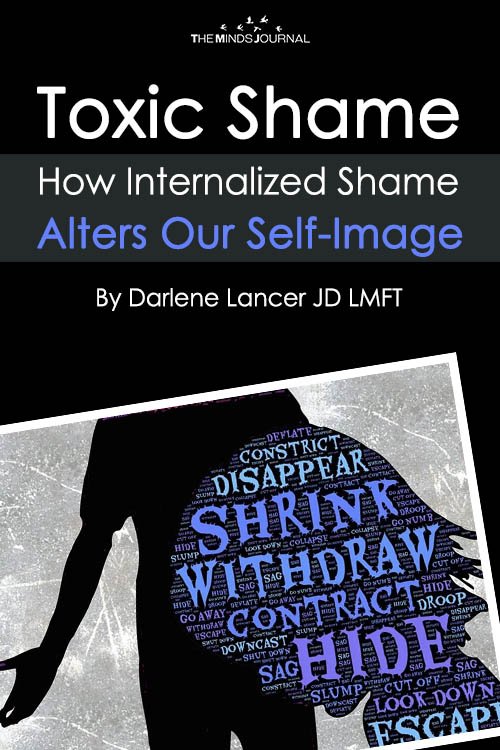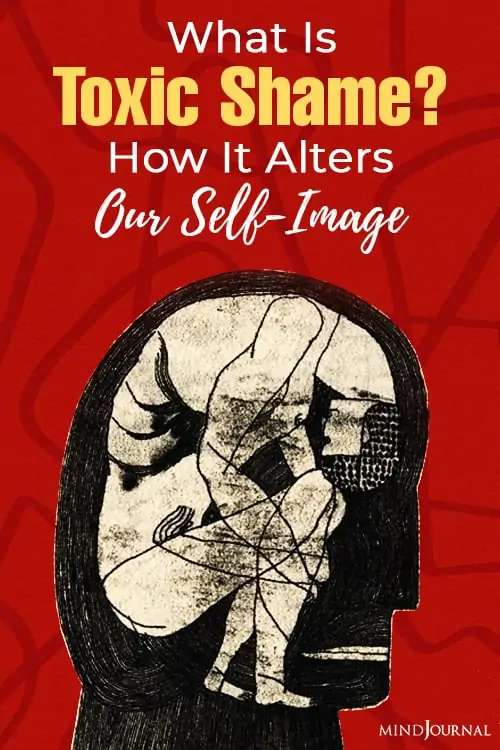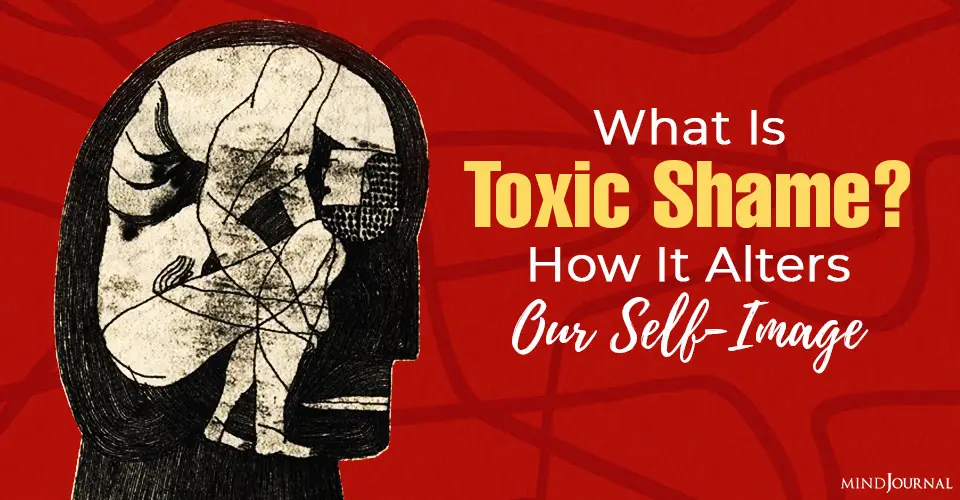When shame becomes toxic, it can ruin our lives.
Everyone experiences shame at one time another. It’s an emotion with physical symptoms like any other that comes and goes, but when it’s severe, it can cause extreme pain. Strong feelings of shame stimulate the nervous system, causing a fight-flight-freeze reaction.
We feel exposed and want to hide or react with rage while feeling profoundly alienated from others and good parts of ourselves. We may not be able to think or talk clearly and be consumed with self-loathing, which is made worse because we’re unable to be rid of ourselves. We all have our own specific triggers or tender points that produce feelings of shame. The intensity of our experience varies, too, depending upon our prior life experiences, cultural beliefs, personality, and the activating event.
Read Healthy Shame And Toxic Shame: How Do We Live With It
Characteristics of Toxic Shame
Unlike ordinary shame, “internalized shame” hangs around and alters our self-image. It’s shame that has become “toxic,” a term first coined by Sylvan Tomkins in the early 60s in his scholarly examination of human affect. For some people, toxic shame can consume their personality, while for others, it lies beneath their conscious awareness, but can easily be triggered. Toxic shame differs from ordinary shame, which passes in a day or a few hours, in the following respects:
1. It can hide in our unconscious so that we’re unaware that we have shame.
2. When we experience shame, it lasts much longer.
3. The feelings and pain associated with shame are of greater intensity.
4. An external event isn’t required to trigger it. Our own thoughts can bring on feelings of shame.
5. It leads to shame spirals that cause depression and feelings of hopelessness and despair.
6. It causes chronic “shame anxiety” – the fear of experiencing shame.
7. It’s accompanied by voices, images, or beliefs originating in childhood and is associated with a negative “shame story” about ourselves.
8. We needn’t recall the original source of the immediate shame, which usually originated in childhood or prior trauma.
9. It creates deep feelings of inadequacy.
Shame-Based Beliefs
The fundamental belief underlying shame is that “I’m unlovable – that I’m not worthy of connection.” Usually, internalized shame manifests as one of the following beliefs or a variation thereof:
• I’m stupid
• I’m unattractive (especially to a romantic partner)
• I’m a failure
• I’m a bad person
• I’m a fraud or phony
• I’m selfish
• I’m not enough (this belief can be applied to numerous areas)
• I hate myself
• I don’t matter
• I’m defective, inadequate
• I shouldn’t have been born
• I’m unlovable
The Cause of Toxic Shame
In most cases, shame becomes internalized or toxic from chronic or intense experiences of shame in childhood. Parents can unintentionally transfer their shame to their children through verbal messages or nonverbal behavior. For an example, a child might feel unloved in reaction to a parent’s depression, absence, indifference, or irritability or feel inadequate due to a parent’s competitiveness or over-correcting behavior. Children need to feel uniquely loved by both parents. When that connection is breached, such as when a child is scolded harshly, children feel alone and ashamed, unless the parent-child bond of love is soon repaired. However, even if shame has been internalized, it can be surmounted by later positive experiences.
If not healed, toxic shame can lead to aggression, depression, eating disorders, PTSD, and addiction. It generates low self-esteem, anxiety, irrational guilt, perfectionism, and codependency, and it limits our ability to enjoy satisfying relationships and professional success.
Read 11 Ways A Narcissists Uses Shame to Control Others
We can heal from toxic shame and build our self-esteem. To learn more about how to and the 8 steps to heal, read Conquering Shame and Codependency: 8 Steps to Freeing the True You. You can watch my Youtube on toxic shame.
©Darlene Lancer 2015
Written by Darlene Lancer JD, MFT Originally appeared on WhatIsCodependency.com Republished with permision










Leave a Reply
You must be logged in to post a comment.